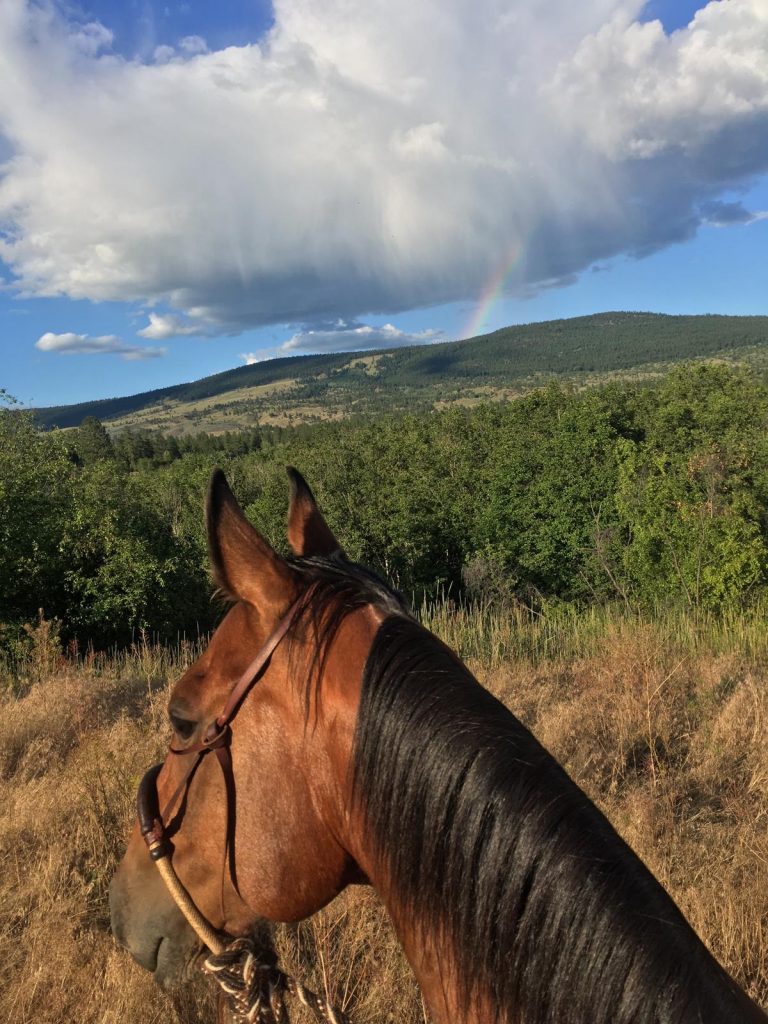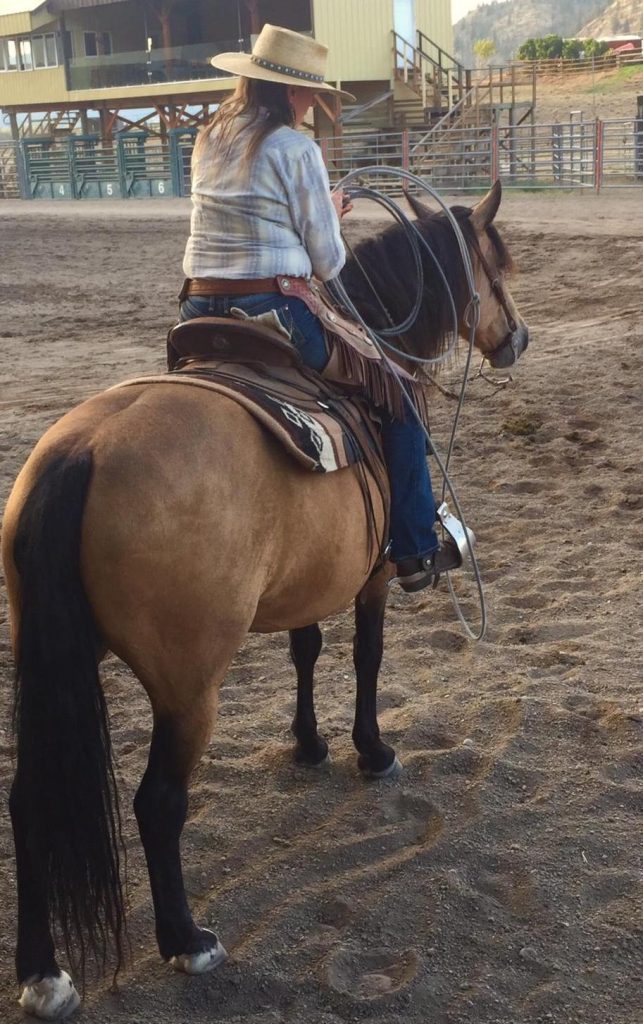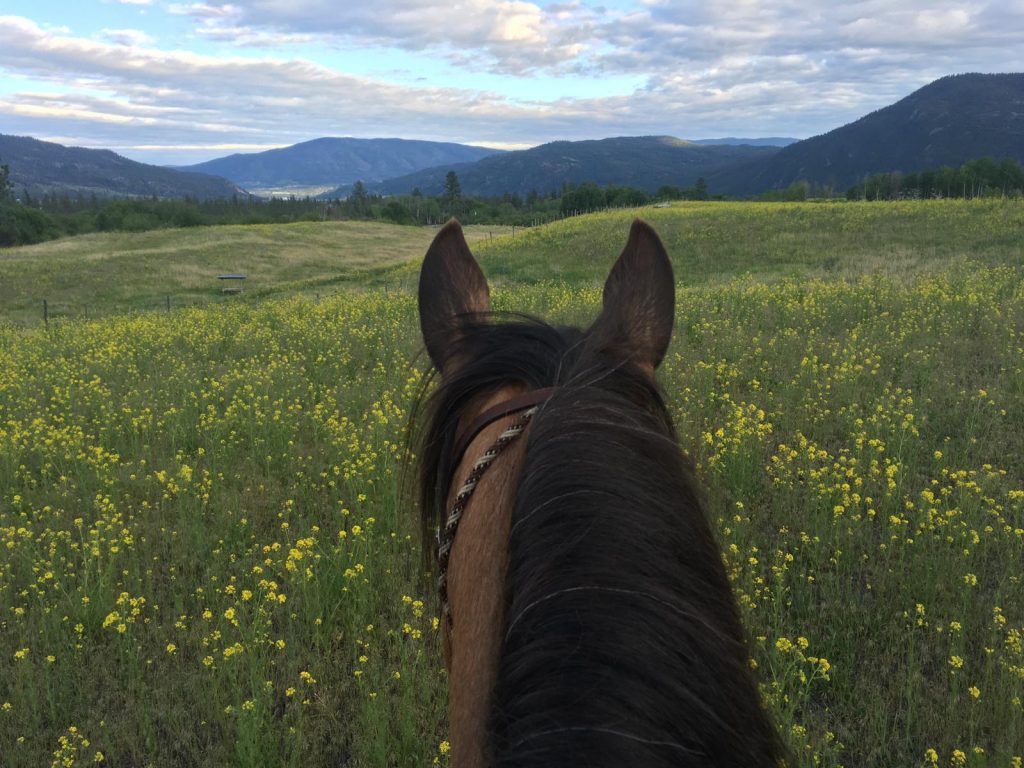
Kyla rides her horse in the British Columbia backcountry
Editor’s Note: Kyla Strange is a talented Canadian horsewoman with followings in British Columbia and New Brunswick. She’ll be a Special Guest at the Best Horse Practices Summit in Maine in October.
Strange has started colts, competed, and been featured in Eclectic Horseman. Her mentors include Jonathan Field, Ray Hunt, Martin Black, and many others.
In this essay, she reflects on the range of meanings of “balance.”
Kyla writes:
‘Your greatness is not what you have, it’s what you give.’ Unknown
It’s a vicious world out there, but, in the end, it’s kindness, empathy, compassion, and hard work that will prevail. Material possessions, ribbons, buckles, fame and fortune are nothing without a strong heart and sincerity behind it. I appreciate a horse with a lot of heart and I appreciate people who are true to themselves, honest, and kind.
When it comes to horses, I like to share something a mentor said long ago, ‘Put your heart in your hands.’ I believe your life and your horsemanship will give back what you give. It’s an intense but rewarding journey, full of peaks and valleys.

Kyla competes at recent roping event
From a place of strength and safety, the heart extends out to the horse. Our horses are like mirrors, bouncing our reflections back on us, leading us to be better versions of ourselves, all the while supporting our mistakes and chomping the rotten apples thrown at them. Whether we come to horses with empathy and respect or agitation and frustration, horses are ever-humbling. They are continuously adjusting every moment to how the human behaves.
When we ask the horse to hurry up and chase down that renegade cow, we have some choices in how we ask: We can lift our energy life up and portray a get-up-and-go attitude. Or, without warning, we can kick the horse deep in the sides with spurs. Either way, the horse adjusts. For this reason, they are extraordinary creatures.
I believe we have a responsibility to offer the horse a good deal. We all have a responsibility to work at it, for the horse and for ourselves. Because the horse is tolerant when we are wrong, we have an equal responsibility to learn and work hard at it. In return, we also work at being a better human.
I am thinking about aspects of ‘balance.’ It’s a diverse topic when it comes to horses:
- Are we riding balanced?
- Are we balanced in our life?
- Do we offer a balanced development program?
- Do we balance the horse’s work and play?

Kyla rides her horse, Panda, in Canada
If we are unbalanced, mentally, physically or emotionally, the horse adjusts naturally.
- When we are having a bad day, the horse naturally provides us therapeutic benefit.
- When we approach horses with fear or aggression, in most cases, the horses tolerate and make do in the situation.
- When our horses are uncomfortable or not doing what we are asking, do we actually listen and care and adjust?
— Can we respond back to them in a gentle, empathetic, problem-solving, pro-active way to work through it?
— Often we humans slog along, failing to appreciate the source of a horse’s buck, bolt or jig. We blame the horse for our own personal imbalances.
— Horses help heal us, but do we listen for the opportunity to return the favor?
I believe that we can look at balance as the overall circular flow between horse and human. I like to refer to this flow as a fluid, even metaphysical energy, from our feel, our contact (energy, seat, leg, hands) going through to the horse circularly to the hindquarters, through to the forehand and back to the rider. A circle of harmony. A circle of balance.
One could look at it as Bill Dorrance did:
‘Adjust your presentation. Feel of the horse so that the horse can feel of you. Set the horse up to succeed. Go with the horse so that the horse can pick up your feel and then go with you. Make the right thing obvious to your horse from the start….And finally, blend with your horse.’
I hope you can find some time to think about balance in your life and balance with your horse and maybe research other aspects of balance. The more balanced we are in our life, the more balanced our horses will be. It’s nature at work.